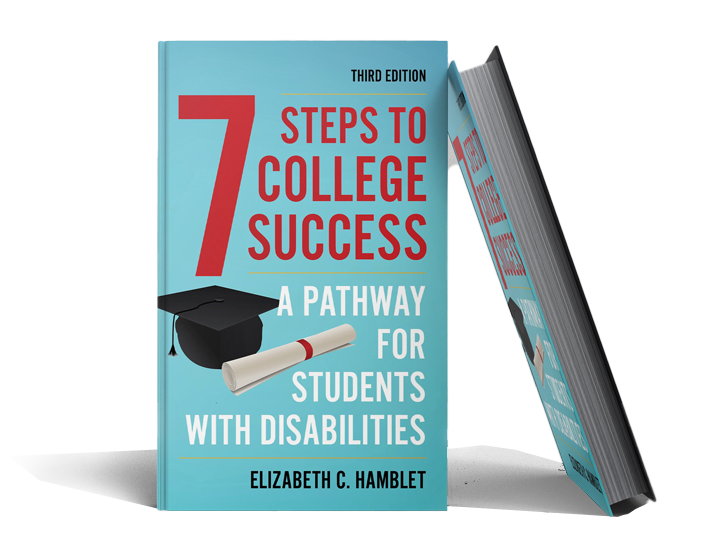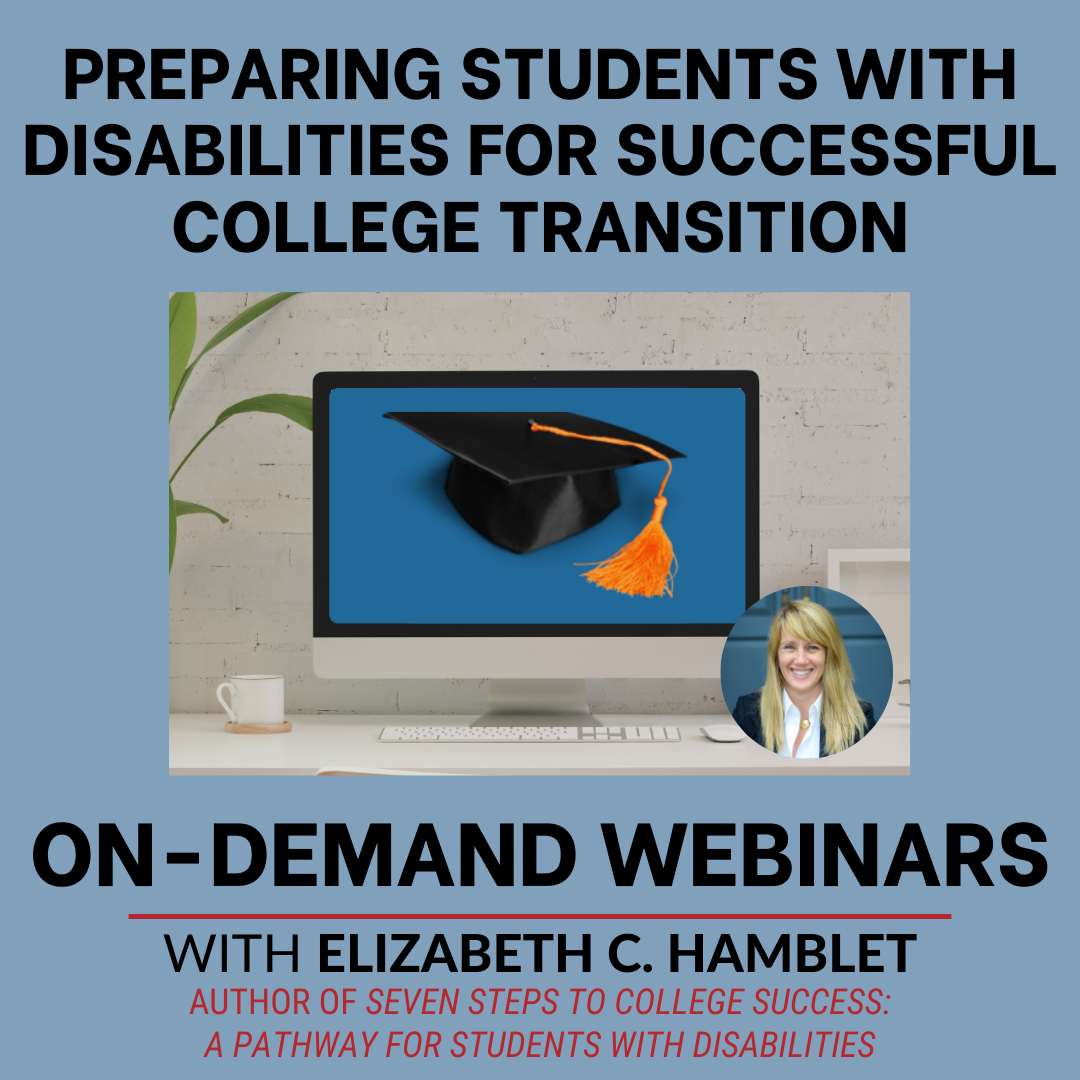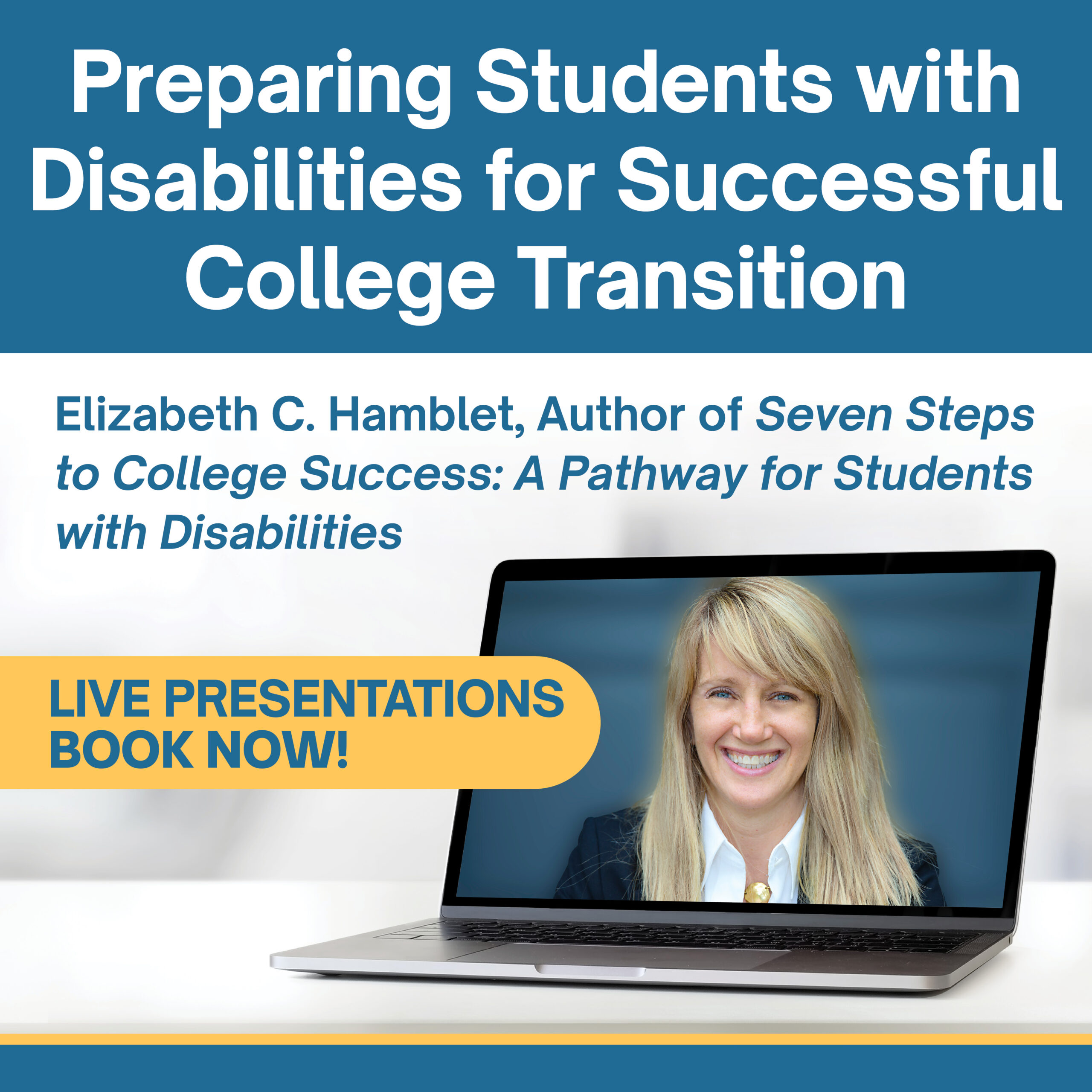Introduction
There is a lot of misinformation passed around about IEPs, 504 plans, and their place in the college disability accommodations process. People with good intentions sometimes misunderstand how things work, or they generalize one student’s experience at one college to be applicable to all. Unfortunately, these misunderstandings may be leading high school IEP teams to make unnecessary changes to students’ plans. Learn what really happens.
Myth #1 – Students should be moved from an IEP to a 504 plan because 504 plans are valid at college
Regular readers of my work know that there are a lot of misunderstandings about 504 plans. It is understandable that people believe that since Section 504 covers both K-12 schools and colleges, colleges have to follow 504 plans, but this is not true.
Colleges do have to provide eligible students with accommodations, but is not because they have 504 plans from their high school. Colleges are subject to Subpart E of Section 504, while K-12 schools are subject to Subpart D. While you won’t find a sentence in the law that says that this means colleges don’t have to follow students’ 504 plans, that is the effect. Read this post or watch this video to learn more.
One possible cause of confusion may be that some colleges’ disability services (DS) offices accept students’ 504 plans (or IEPs) as documentation (meaning paperwork showing the presence) of their disability, and in some cases, they may also grant the same accommodations students had received in high school.
This may lead to an understandable misconception that those schools are actually following students’ 504 plans, but this is not what they’re doing. In these situations, colleges are simply providing the same accommodations students received before because they’ve found those students eligible for them and the accommodations were considered appropriate.
Myth #2 – High school students should be taken off of any plan (504 or IEP) for their senior year because there aren’t accommodations at college for students with learning disabilities and/or ADHD
Colleges do provide accommodations for all sorts of disabilities – not just apparent ones (meaning those that can be observed, such as when a student uses a wheelchair or is blind) but also non-apparent ones, including learning disabilities, ADHD, autism, and mental health disabilities. (A number of colleges don’t accommodate test anxiety, though, as it is not considered a disability.) In some cases, students may even get more accommodations than they received in high school.
No one should take away all of students’ accommodations in their senior year because of any misunderstanding about the availability of college accommodations.
However, if students hope to attend college, planning in 8th grade for the 9th grade should include conversations about the kinds of accommodations colleges typically offer and don’t. This way, students can decide whether their plans throughout high school will include teaching them strategies and scaling back supports they’re unlikely to get at college so that by senior year, they’re using only those that are commonly approved at college. (Get detailed about what accommodations aren’t commonly approved in Step 7 of my book or watch my on-demand webinar.)
Myth #3 – If a student received an accommodation in high school, colleges have to provide the same accommodations
College DS offices decide what accommodations students will receive based on what they see in their documentation. (Read corrections to myths about documentation.) Some colleges ask students what accommodations they received previously, but that doesn’t mean they’re obligated to provide them. That said, there are several accommodations that are commonly granted at the college level.
At the same time, though, there are some categories of accommodations that colleges don’t have to grant because of exceptions in the prevailing laws. The category you may have heard about is one that exempts colleges from approving anything that would be a fundamental alteration to essential elements of the college’s overall requirements or of a particular class or program.
And there are some they generally don’t provide because of what they consider to be appropriate at the college level (ex. a chance to retake tests for a better grade).
Myth #4 – High schools should add lots of accommodations onto students’ high school plans so that they can receive those in college
Again, colleges don’t follow IEPs or 504 plans, and they are not legally obligated to provide the same accommodations students previously received simply because they had them in the past. Some colleges won’t ask to see students IEPs or 504 plans, and even if they do, that doesn’t mean they will approve what’s in these. Many colleges grant accommodations only if they see a link between the effect of students’ disability on their functioning and their requested accommodations.
High schools can recommend in their transition plans any accommodations that students haven’t needed in high school but that students may need in college, where the academic environment can be quite different. For instance, a student who might not need to be tested in a room with fewer distractions in a typical high school class environment might need an accommodation at college if their classes are held large lecture halls. Again, that also doesn’t obligate colleges to provide those accommodations unless they think they are supported by students’ documentation.
While this probably won’t happen for many students, there will be some situations where students who received a certain accommodation aren’t found eligible for it at their college. They should ask their contact at disability services (DS) what they might do to appeal that decision. (Learn more about students’ rights, and their responsbilities.)
Myth #5 – Students will receive more/better accommodations if they attend a private college
I think this is based on the idea that because private colleges charge more money, they will be more generous with students or have more to offer.
As with so many parts of the discussion around college transition and accommodations, it’s not a good idea to make such generalizations. There’s certainly no data demonstrating this is true. Often, this statement just reflects people’s beliefs, which aren’t based in facts.
There are public schools that provide accommodations and services that go beyond the minimum required by law (for free, not through a fee-based LD program), and there are private colleges that won’t provide what students might expect, given the tuition.




